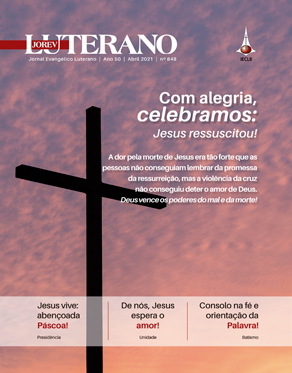Some remarks on churches
By Luis Stephanou*
In the first bulletins, I had already made some comments on the organisation of the Forum and the presence of ecumenical churches. The Forum was carried out with a weak structure and few resources. Regarding organisation, the budget was much lower than the one in Porto Alegre. In this edition, the Forum has received neither local political support nor public funding.
At least as far as I could see, there was no official political presence, and resources from the State of Mahrastra or the City of Mumbai were restrained to policemen – and even those were there in a significant number, only from the second day on. The local press gave a much smaller coverage than the Porto Alegre press. Many foreign journalists circulated around the press centre, but few of them were from India.
Much was said about the presence of the Communist Party in the organisation. The Forum’s executive headquarters was in the same building as the Communist Party of India. Most comments I could hear about this were negative, since the Charter of Principles does not allow partisan organisations to be the event’s organisers. It was also said that this encouraged divides and the absence of some social sectors committed to other parties of different ideological stances. I have no means to evaluate such issue.
The place also compromised the events visibility. Nesco Ground was located in Goreagon, a neighbourhood almost 30 kilometres away from downtown Mumbai. And there was nothing there but this large abandoned factory, an expressway, and a group of large shantytowns. If it were not for the rally on the last day (and the rape charge scandal…) in Mumbai, the Forum would have drawn no attention. Even so, one has the impression that, for the city, it was one more event that passed.
And why Mumbai? The only explanation is easy access and hotel infrastructure, besides communications and other material items. The political issue was certainly not the reason, because Calcutta has a much longer history of social movements and struggles. But it is also much poorer and deprived of infrastructure – the reason why holding the event there wasn’t even considered. In my opinion, the place’s human factor (history of the movements) should have more weight than it had in this choice. In this respect, Porto Alegre was more suitable.
Even with all difficulties, the Forum was an adventure with a happy ending. And the work of thousands of volunteers was very important for that. Many tasks concerning installation, basic adjustment of the physical structure, cleaning (before, during and after), production of materials, credentials, translations, food, logistics, direction services, and also a large part of security, were made by volunteers. That certainly involved thousands of people, including hundreds of foreigners (among which a few Brazilians that helped a lot with the previous experience in organisation). Several services were probably made entirely through volunteers’ work. There were many translation problems, which is also not hard to understand (and accept). The introduction of Hindi brought a large increase to the demand for those services, and translators were not available all the time. Even so, chaos never took over. Sometimes there was a controlled chaos, something very characteristic of the Indian way of being… As far as I know, all large conferences, testimonies, and panels took place. In all the workshops I decided to watch, even with a few problems, debate was successful. There was not, for instance, the problem of Porto Alegre, where there were two workshop schedules.
Besides voluntary work, support by international cooperation agencies was crucial. A meeting of that size cannot be made without money and it had to come from somewhere. Ecumenical agencies had a strong presence in this regard, not only in fundraising, but also in developing themes and agendas in several spaces of the Forum. What could be called the ecumenical delegation – that is, people related to churches, agencies or to the World Council of Churches – must have included 250 delegates (or more) – not counting the presence of groups from the Church's Auxiliary for Social Action - India (Casa), with about 2,000 delegates. Such participation of ecumenical delegates will continue to be very important in the next Forum.
*Programme assistant of the Lutheran Foundation of Diaconia.














